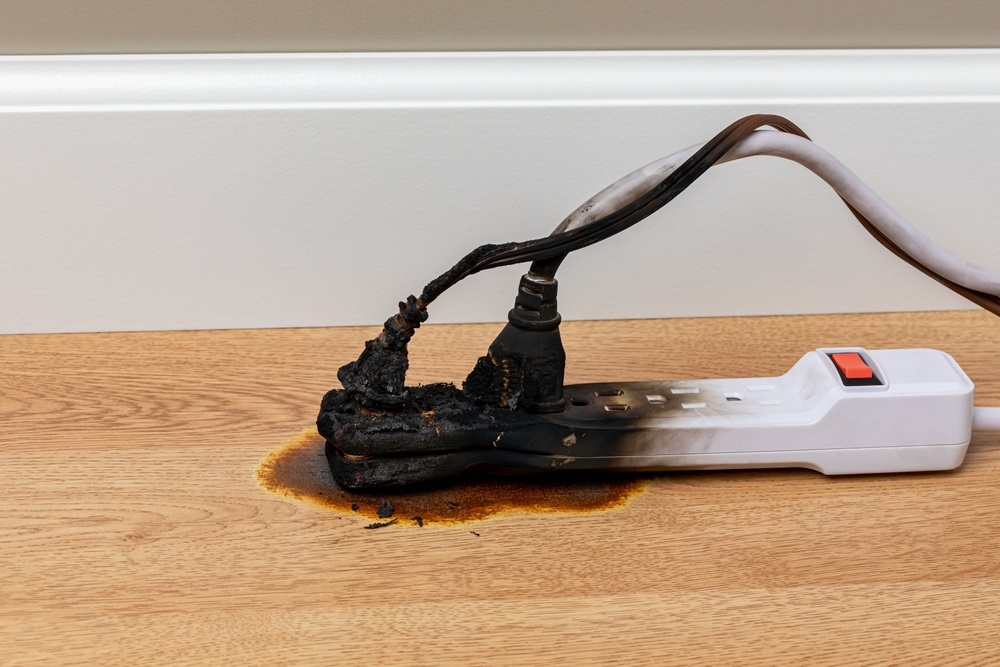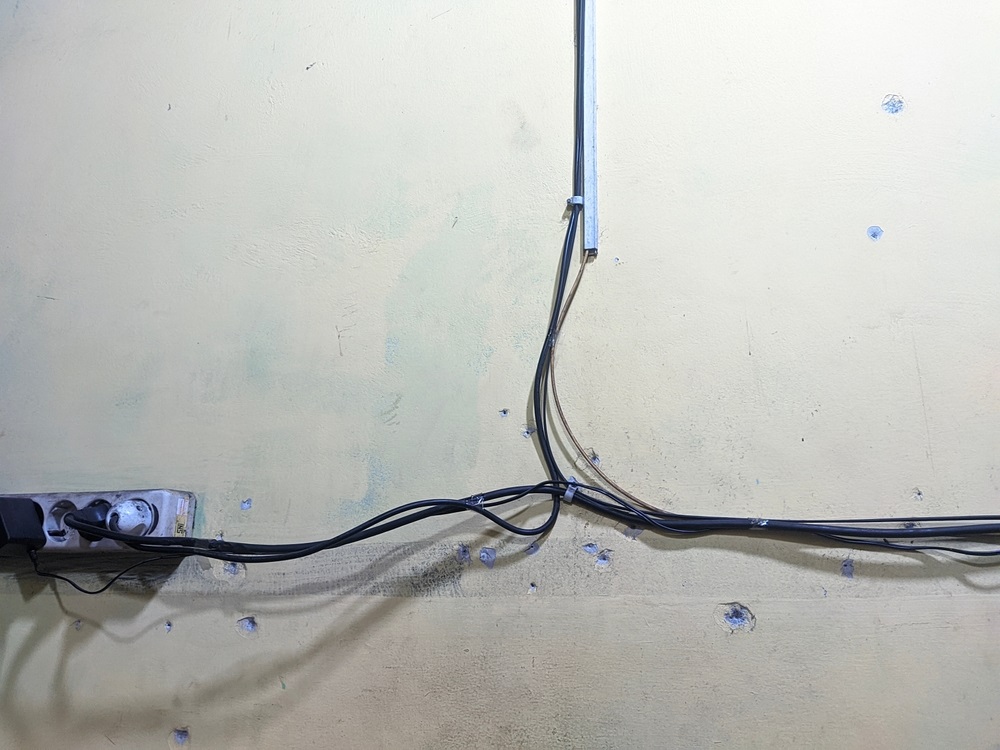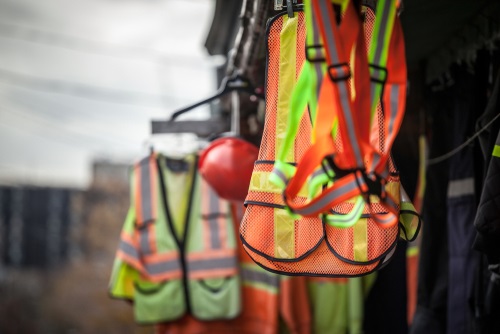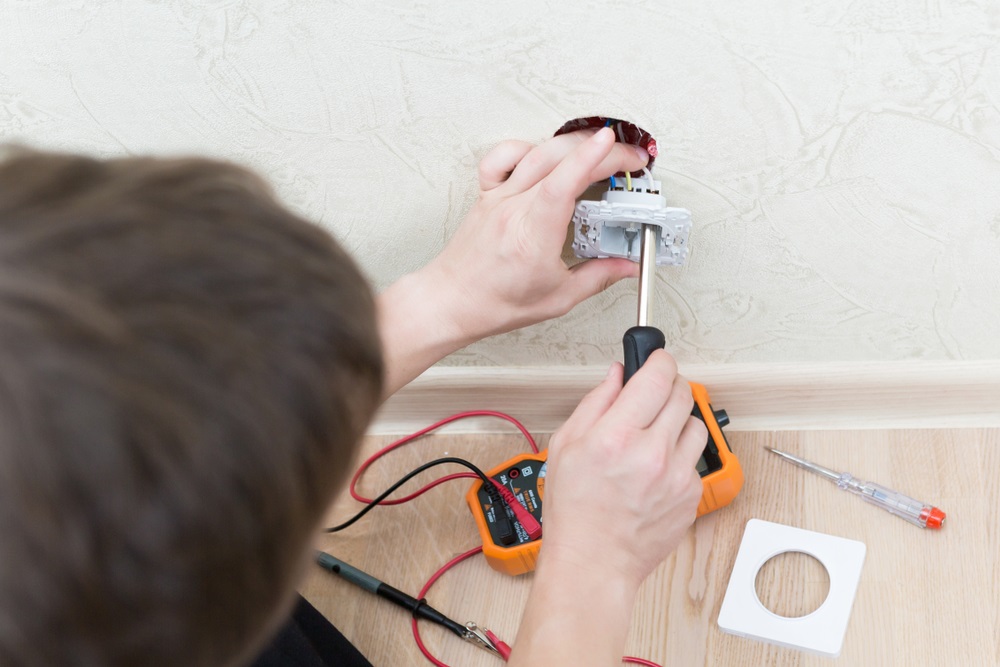Electrical systems are critical to the operation of your own home or business, but when not properly maintained or installed, they can become fire hazards. Even seemingly minor electrical mistakes can lead to dangerous situations. At Pelican Coast Electric, we believe that electrical safety is paramount, and we’re here to help you avoid the most common mistakes that can put your property at risk.
In this article, we’ll walk you through the top 10 electrical mistakes to avoid, and we’ll explain how to make sure your electrical installations comply with the National Electrical Code (NEC) and other safety standards.
1. Ignoring Electrical Safety Standards
One of the most common mistakes made by homeowners is ignoring electrical safety standards, especially when performing electrical projects themselves. Many don’t realize the importance of adhering to the National Electrical Code or local building codes.
Why It’s Dangerous:
Failure to comply with the electrical code can result in serious risks, including fire hazards and electrical accidents. Non-compliant electrical connections can cause electric current overloads, sparks, or arcs that may lead to fires.
What You Should Do:
Always consult a qualified electrician before undertaking any electrical installations or repairs. Ensure your work follows the electrical code and always prioritize electrical safety.

2. Overloading Electrical Outlets
Overloading electrical outlets is a common problem, especially in areas with lots of devices plugged in, such as the kitchen or living room. Using a single outlet for too many devices puts excessive strain on the system.
Why It’s Dangerous:
Overloading an outlet increases the chances of overheating, which can lead to a fire hazard. Using multiple devices at once can also cause circuit breakers to trip, resulting in accidental damage to the system.
What You Should Do:
To avoid overloading, distribute the electrical load across several outlets. If you need additional outlets or circuits, call a qualified electrician to handle the electrical installations safely.
3. Improper Grounding of Electrical Systems
Proper grounding is essential for electrical safety. Failing to ground electrical outlets or appliances properly can expose you to electric current risks. This is particularly important when installing major appliances like space heaters, ceiling fans, or new appliances.
Why It’s Dangerous:
A ground fault circuit occurs when the system isn’t grounded correctly, which increases the likelihood of electrical shocks or electrical fires. Without proper grounding, ground fault circuit interrupters (GFCIs) can’t function as intended.
What You Should Do:
Ensure your system has proper grounding, especially in kitchens, bathrooms, and outdoor areas where ground fault circuit interrupters are required by the National Electrical Code. Ground fault circuit interrupters can quickly shut down power to prevent shocks.
4. Neglecting Electrical Junction Boxes
Junction boxes are often overlooked during electrical installations, yet they’re crucial for protecting connections. When wiring isn’t properly housed in a junction box, it increases the risk of exposed wires and potential short circuits.
Why It’s Dangerous:
Exposed wires can cause arc hazards, electrical shocks, or fires. Additionally, without the right protection, wiring can deteriorate due to exposure to elements like moisture, heat, or combustible materials.
What You Should Do:
Always install wiring in an appropriate electrical box or junction box to protect the connections. Ensure the box is correctly sized to handle the electrical load and fully complies with the electrical code.

5. Incorrect Wiring of New Appliances
When installing new appliances, improper electrical connections are a frequent mistake. For instance, connecting a new appliance to the wrong voltage, using incorrect wiring, or failing to account for the power requirements can cause issues.
Why It’s Dangerous:
Improper wiring can damage the appliance, cause overheating, or increase the likelihood of electrical failure. It can also lead to accidental damage to the electrical system or the appliance itself.
What You Should Do:
Ensure that your electrical outlets and wiring are compatible with the power requirements of your new appliance. Consult with a qualified electrician to verify that your electrical system is properly prepared for the installation.
6. Improper Use of Bare Copper Wire
In some DIY projects, homeowners use bare copper wire to make connections. While bare copper wire is often used for grounding purposes, it should never be used as a substitute for insulated wiring in circuits.
Why It’s Dangerous:
Bare copper wire can expose electrical connections to the environment, increasing the risk of short circuits, electrical shocks, and potential fire hazards. Unprotected bare copper wire is also more vulnerable to accidental damage.
What You Should Do:
Use the appropriate type of wire for each circuit and follow the National Electrical Code for safe wiring practices. If you’re unsure, it’s always best to consult a qualified electrician to ensure compliance with the correct safety standards.
Read more: How to Prepare for a Whole House Rewire
7. Not Installing Ground Fault Circuit Interrupters (GFCIs)
Certain areas of your home require GFCIs, including bathrooms, kitchens, and outdoor areas where water is present. Ground fault circuit interrupters are designed to shut off power when they detect a ground fault circuit, preventing electric shock.
Why It’s Dangerous:
Without GFCIs, you’re exposed to electrical shocks when there’s moisture or water around electrical outlets. This is especially important for areas near sinks, pools, or showers, where the risk of electric shock increases.
What You Should Do:
Ensure that GFCIs are installed in electrical outlets near water sources. This is a requirement under the electrical code, and it’s one of the easiest ways to improve electrical safety in your home.
8. Failure to Protect Electrical Wiring from Combustible Materials
Wiring that is exposed to combustible materials like insulation, drywall, or other building materials can overheat and catch fire. It’s important to keep electrical wiring safe from potential fire hazards.
Why It’s Dangerous:
Heat from overloaded circuits or damaged wiring can ignite combustible materials surrounding the wires. This is a significant fire hazard in homes, especially those with poor insulation or outdated electrical systems.
What You Should Do:
Ensure that electrical wires are correctly routed and insulated. Always follow electrical code regulations for securing wires safely away from combustible materials.

9. Not Using Personal Protective Equipment (PPE)
Whether you’re working on an electrical project yourself or supervising an installation, personal protective equipment (PPE) should always be worn. This includes rubber gloves, insulated tools, and safety goggles.
Why It’s Dangerous:
Handling live wires without the proper PPE increases your risk of electric shock, burns, or other injuries.
What You Should Do:
If you’re working with electrical systems, wear the proper PPE and ensure you take all safety precautions. Qualified electricians use appropriate safety gear during all installations to minimize risks.
10. Not Labeling Electrical Sockets or Panels
Labeling your electrical box and electrical outlets is crucial for safety. If circuits aren’t labeled correctly, it can lead to confusion and potentially dangerous situations when working with your electrical system.
Why It’s Dangerous:
If circuits are not properly labeled, it’s difficult to safely turn off power when making repairs or modifications. This increases the risk of accidental shock or short circuits, especially when working on high-voltage circuits.
What You Should Do:
Label all electrical outlets, circuits, and fuses in your electrical box. This helps when performing maintenance and ensures you can safely disconnect power during repairs.
FAQ: Commonly Asked Questions About Electrical Mistakes
What Is the National Electrical Code?
The National Electrical Code (NEC) is a set of standards designed to ensure safe electrical installations. It governs everything from wiring methods to electrical outlets and circuit breakers.
Why Should I Avoid Overloading Electrical Outlets?
Overloading electrical outlets can lead to overheating, which can cause fire hazards and electrical accidents. It’s important to avoid overloading and to distribute your power usage across multiple outlets.
How Do I Know If My Wiring Is Outdated?
If your home has white wire or older insulation types, it may be time to replace your wiring. Contact a qualified electrician for an inspection to ensure your wiring meets modern safety standards.
What Are Ground Fault Circuit Interrupters (GFCIs)?
GFCIs are electrical devices that protect against electric shock by cutting off power when they detect a ground fault circuit. They are required in areas like kitchens and bathrooms where moisture is present.
Why Is Labeling Electrical Circuits Important?
Proper labeling of your electrical box and electrical outlets helps you quickly and safely identify circuits during maintenance or emergencies, preventing accidental damage.
Conclusion
By avoiding these top 10 electrical mistakes, you can ensure that your electrical installations and systems are safe, compliant, and efficient. Whether you’re upgrading electrical outlets, installing a ceiling fan, or performing regular maintenance, always prioritize electrical safety and follow the National Electrical Code.
For expert assistance with all your electrical projects, trust Pelican Coast Electric. Our qualified electricians are here to ensure your electrical system is up to code and operating safely.

